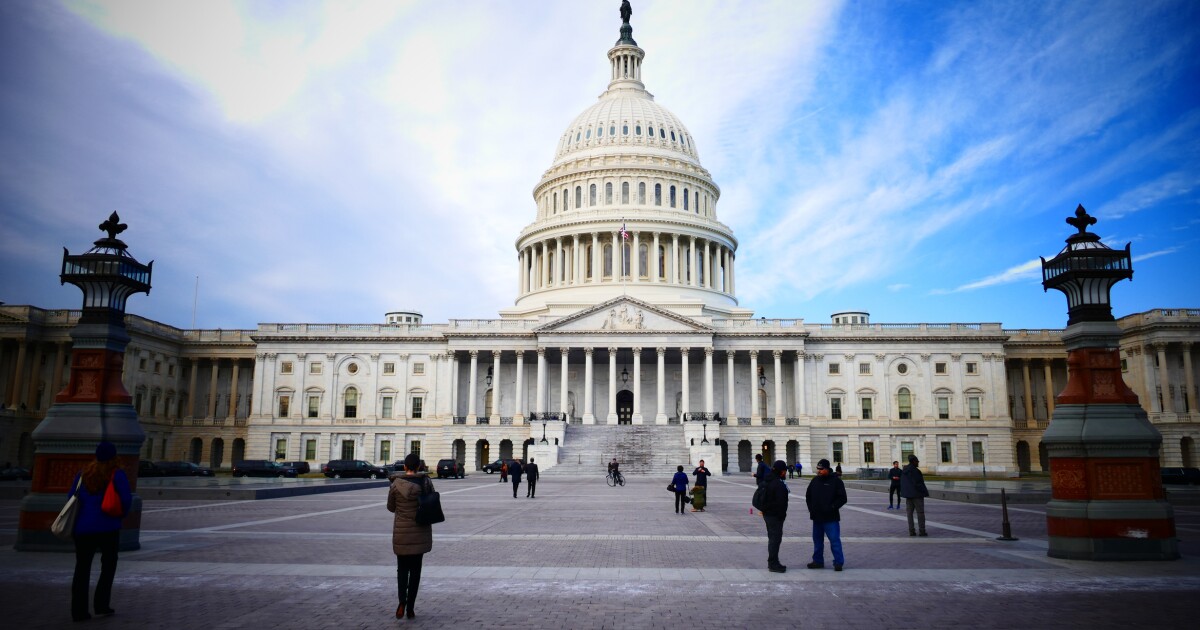

It was a big week for cryptocurrency on Capitol Hill, with the House moving forward with a couple major pieces of legislation and a bipartisan caste of senators planning an even more aggressive bill.
The latest legislative blitz comes as lawmakers hope to put more guardrails up for the cryptocurrency industry, especially amid the fallout from the sudden collapse of cryptocurrency giant FTX late last year. The bills in question would overhaul crypto regulation, set up a regulatory framework for stablecoins, and clamp down on the use of digital assets for money laundering.
INFLATION DECLINED TO 3% IN JUNE, ACCORDING TO KEY GAUGE WATCHED BY FED
On Wednesday, the House Financial Services Committee approved legislation that would create a regulatory framework for the issuance and trading of digital assets at the Securities and Exchange Commission and Commodity Futures Trading Commission.
The vote was 35-15, with six Democrats — Reps. Josh Gottheimer (NJ), Jim Himes (CT), Steven Horsford (NV), Wiley Nickel (NC), Brittany Pettersen (CO), and Ritchie Torres (NY) — joining with Republicans in the effort.
The bill, which was not supported by the committee’s ranking member, Rep. Maxine Waters (D-CA), creates rules for when cryptocurrency companies must register with either the SEC or CFTC and develops a certification system for issuers to show that a blockchain network is sufficiently decentralized — allowing tokens to be classified as commodities rather than securities and thus be overseen by the CFTC.
The legislation would also require both the SEC and CFTC to engage in joint rulemaking and require studies on matters such as nonfungible tokens and decentralized finance
The bill comes just after a major ruling on the debate over what different cryptocurrencies should be classified as. A federal judge ruled this month that cryptocurrency Ripple’s token is “not necessarily a security on its face.” Included in the crypto legislation is language that appears to conform it to that ruling, according to Bloomberg.
Waters framed the Republican-backed legislation as “a wish list of big crypto,” despite some of her colleagues crossing the aisle to vote it out of committee. One such individual, Himes, said he voted for it because it is better than the current situation.
“I am confident that this legislation, while not perfect, makes the status quo better,” Himes said.
John Berlau, a senior fellow and director of finance policy at the Competitive Enterprise Institute, told the Washington Examiner that Congress should tread lightly in granting more power to federal agencies, especially in light of judicial rulings such as the recent Ripple one.
“I think we need to be very careful in any legislation that grants blanket powers over cryptocurrency to the SEC, to the CFTC, or to any new agency,” he said.
Another major piece of legislation, passed out of the Financial Services Committee on Thursday after hours of debate, targets the stablecoin market.
Stablecoins, a $123 billion market, are a form of cryptocurrency that ties its value to an underlying asset, such as gold or fiat currency. They don’t typically fluctuate in value wildly, as some cryptocurrencies, such as bitcoin, have, because they are asset-backed.
The Clarity for Payment Stablecoins Act passed 34-16 out of the committee, with Himes, Gottheimer, Torres, Nickel, and Rep. Gregory Meeks (D-NY) joining the Republicans on the committee.
The Thursday markup began with finger-pointing. Chairman Patrick McHenry (R-NC) opened the hearing by accusing the White House of trying to sink bipartisan efforts to reach a deal.
“Unfortunately, there was a third party in this negotiation that did not share our same sense of urgency — the White House,” he said. “A bipartisan deal was within reach — we were closer than we’ve ever been. A few small, but nonetheless important, provisions stood between us and a deal. It was the White House’s unwillingness to compromise that has once again brought negotiations to a halt.”
The legislation would set up a federal regulatory structure while still assigning a role to individual states. The legislation applies to payment stablecoins and would define what assets can be used to back stablecoins (for instance, gold or U.S. dollars).
It also requires that stablecoin issuers submit certificates to either state or federal regulators with information about their coins and sets parameters for banks issuing stablecoins and establishes capital requirements for stablecoin issuers.
And then, on Friday, a bipartisan group of senators — led by Elizabeth Warren (D-MA) and Roger Marshall (R-KS) — reintroduced the Digital Asset Anti-Money Laundering Act, legislation that is designed to crack down on money laundering and terrorism financing through cryptocurrencies.
The bill would force know-your-customer rules onto participants in the cryptocurrency space, such as wallet providers and crypto miners.
Wallets are like digital containers where various cryptocurrencies can be stored in, and mining is the process of minting new coins or tokens. To mine for bitcoin, for instance, high-powered computers are used to verify virtual coin transactions. Bitcoin operates on what is known as a blockchain, essentially a public ledger, that contains the history of every transaction. The miners’ computers solve complicated math problems in order to add new blocks to the chain and are in turn rewarded with the digital token, making the endeavor profitable.
The bill would also compel the Financial Crimes Enforcement Network to make rules mandating institutions verify the identity of customers and keep records about crypto transactions involving “unhosted” wallets, which are ones that the user has complete control over the contents.
“Crypto has become the payment method of choice for rogue nations, drug lords, ransomware gangs, and fraudsters to launder billions of dollars in stolen funds, evade sanctions, fund illegal weapons programs, and profit off of devastating cyberattacks,” Warren said in a statement. “This bipartisan bill is the toughest proposal on the table to crack down on crypto crime and give regulators the tools they need to stop the flow of crypto to bad actors.”
CLICK HERE TO READ MORE FROM THE WASHINGTON EXAMINER
The price of bitcoin, a pretty decent barometer of the overall cryptocurrency market, was generally in the red this week amid the regulatory push, although overall, bitcoin and the price of other crypto tokens have risen since the start of the year — good news for the industry after a brutal 2022, which saw massive amounts of value wiped away.
As of Friday afternoon, bitcoin was hovering above $29,000. That’s about a 16% increase from a recent dip in June and a huge 76% increase since the start of this year.





